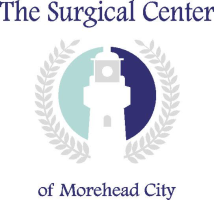Cataracts
A cataract is a cloudiness of the normally transparent eye lens. If left untreated, it will decrease vision and can lead to blindness.
Cataracts are a common vision problem, especially as we age. Cataracts are the leading cause of vision loss among people over 55, and they affect one in six Americans older than age 40. More than one-half of all Americans will have cataracts by age 70.
Cataract Warning Signs and Symptoms
As a cataract progresses, you may notice a decrease in your clarity of vision that glasses cannot fully correct. You may also experience:
- Cloudy or blurry vision
- Difficulty seeing at night, especially while driving
- Sensitivity to bright lights
- A halo effect around lights
- Faded or yellowed colors
- Double vision in the affected eye
- A need to change your glasses or contacts prescription frequently
Cataract Treatment
Cataract surgery is a low-risk treatment that effectively restores vision. The surgery is performed on an outpatient basis, is painless and generally takes less than 15 minutes. In most cases, patients are in and out of the surgery center in just two to three hours and can resume most normal activities the next day. Serious complications are rare, and cataract surgery has an overall success rate of 98 percent or higher.
Procedure
Cataract surgery involves removing the eye’s cloudy lens and replacing it with an artificial lens called an intraocular lens (IOL). An IOL is a clear, plastic lens that becomes a permanent part of the eye and requires no care.
We use Phacoemulsification (Phaco), the most commonly used cataract surgery procedure today. Phaco reduces recovery time and lowers the risks associated with larger incisions. It involves only a few steps:
- The surgeon makes a small incision on the side of the cornea (the clear, dome-shaped surface that covers the front of the eye).
- The surgeon then inserts a tiny probe into the eye.
- The Phaco device emits ultrasound waves that soften and break up the lens so the surgeon can remove it through gentle suction.
- The surgeon inserts the new lens and aligns it correctly.
The incision is so small it seals itself, so stitches are rarely necessary.
Recovery
After surgery, the medical team will place a shield over your eye and monitor you for any issues. Most patients are discharged within half an hour, though they will need a designated driver to take them home.
Post-surgery recovery time is relatively short. Most people take it easy for about a week after surgery, but you can generally resume most normal activities the next day. Your doctor will provide detailed instructions for eye care after the surgery.
Cataract Prevention
Cataracts develop as you age, but there are some steps you can take to slow their development:
- Wear sunglasses. Ultraviolet B (UVB) rays from the sun may contribute to cataract development, so always wear sunglasses when outdoors.
- Quit smoking. Smoking is known to promote cataract growth. Ask your doctor about medications or other strategies to help you quit.
- Don’t ignore health problems. Diabetes and other medical conditions can increase your risk of cataracts. Adhere to the treatment plan your doctor suggests.
- Maintain a healthy weight. Being overweight or obese can increase your likelihood of developing cataracts, so reduce your caloric intake and increase your exercise level if you fall into either category.
- Eat more fruits and vegetables. Fruits and vegetables provide vitamins, nutrients and antioxidants that could prevent damage to your lenses.
Benefits of Cataract Surgery
- Sharper vision with vibrant, clear colors
- Improved confidence when driving at night
- Reduced glare and halos from headlights, lamps and sunlight
- Increased level of independence
- Improved quality of life
- Greater enjoyment of activities like reading, watching television, cooking, shopping and more
- Fewer prescription changes for eyeglasses or contact lenses
- Lowered risk of falling and fractures and improved chances of living longer
